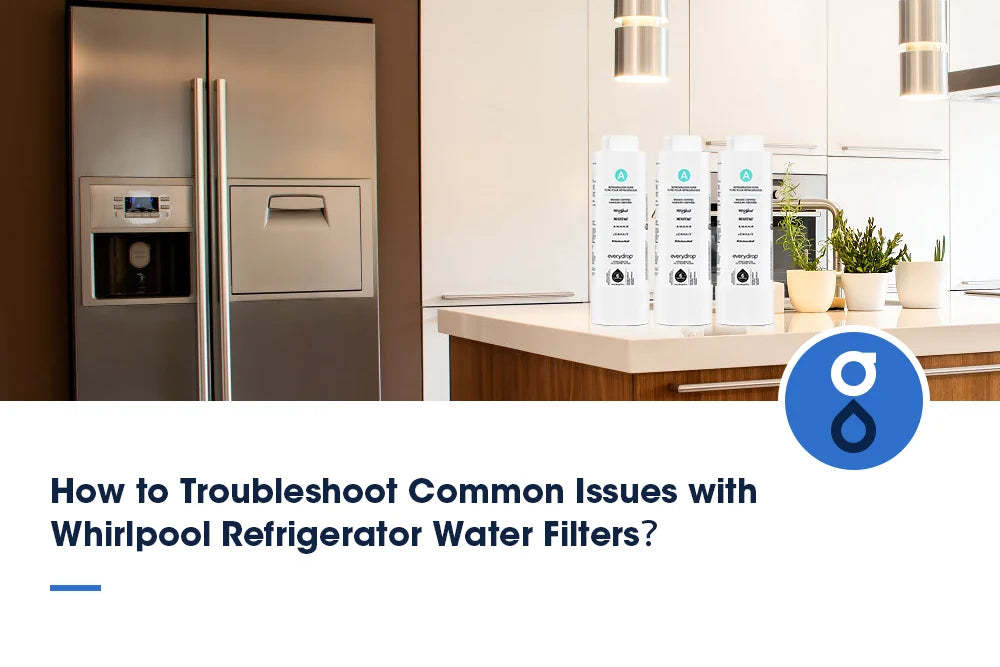Table of Contents:
Why does water quality matter?
The role of membranes in reverse osmosis systems
The benefits of reverse osmosis for water taste and quality
The stages of reverse osmosis filtration
Common questions and concerns of reverse osmosis system
Conclusion
Taste and quality play a significant role in enjoying refreshing water. While tap water may be readily available, we need more than tap water to meet our expectations. Fortunately, there is a solution: reverse osmosis systems. These innovative systems have gained popularity for their ability to enhance the taste and quality of drinking water. This article will explore the numerous benefits of reverse osmosis systems and how they can greatly improve your drinking water experience.
Why does water quality matter?

When it comes to drinking water, there are key factors to consider. Firstly, water quality directly impacts your health. Clean water is crucial for hydration, digestion, and overall bodily functions. Moreover, ensuring water safety is vital to prevent waterborne diseases and contaminants. This is where reverse osmosis systems are critical in enhancing water quality and trying to arrive at EWG`s health-protective standards for drinking water.
Water quality has an environmental impact in addition to health benefits. By choosing systems that purify water efficiently, you contribute to reducing plastic waste from bottled water consumption. Lastly, taste preference is another crucial aspect influenced by water quality. Clean, purified water often tastes better, making drinking more enjoyable and encouraging proper hydration. By prioritizing water quality, you promote good health and contribute to environmental sustainability and personal satisfaction.
The role of membranes in reverse osmosis systems

Membranes in reverse osmosis systems play a crucial role in filtering out contaminants and impurities from drinking water. The membrane composition, typically made of thin-film composite material, determines its effectiveness in removing pollutants. The membrane pore size, usually from 0.0001 to 0.001 microns, ensures that only water molecules can pass through while blocking larger molecules like bacteria and viruses.
Advanced membrane technology, such as spiral-wound membranes, enhances filtration efficiency by maximizing surface area for water treatment. The efficiency of membranes in reverse osmosis systems ensures that harmful substances are effectively removed, providing clean and safe drinking water. Moreover, membrane durability is essential for long-term performance, ensuring a consistent flow of purified water over time.
The benefits of reverse osmosis for water taste and quality
Great-tasting water with enhanced quality
Enhance the taste and quality of your drinking water by utilizing a undersink reverse osmosis system. Reverse osmosis is a highly effective water purification method, ensuring you have access to clean and safe drinking water. Here are some key benefits of using reverse osmosis for great-tasting water with enhanced quality:
- Taste improvement: Reverse osmosis systems remove impurities, chemicals, and contaminants from your water, resulting in a fresher and better taste free from unpleasant odors and flavors.
- Health benefits: Reverse osmosis eliminates harmful substances through thorough water filtration, providing pure and uncontaminated drinking water.
- Quality enhancement: With reverse osmosis, you can enjoy the peace of mind that comes with knowing your water is of the highest quality, meeting strict standards for cleanliness and purity.
Retention of beneficial minerals
Benefit from the removal of impurities while maintaining essential minerals in your drinking water through the process of reverse osmosis. Reverse osmosis systems excel at achieving a perfect mineral balance by selectively filtering out harmful contaminants while preserving vital nutrients. This ensures that your water isn't only clean and rich in the minerals crucial for your health. By retaining these essential elements, reverse osmosis guarantees water purity at its finest.
The nutrient retention provided by reverse osmosis contributes to numerous health benefits. Clean water with a balanced mineral composition can enhance well-being by supporting bodily functions and promoting hydration. Furthermore, the taste enhancement resulting from eliminating impurities ensures that every sip of water is refreshing and enjoyable.
Reduction of contaminants and hardness minerals
Reverse osmosis systems effectively remove contaminants and hardness minerals, significantly improving the taste and quality of your drinking water. When considering the benefits of reverse osmosis for water taste and quality, here are some key advantages to keep in mind:
- Contaminant removal, water safety: Reverse osmosis systems excel at eliminating harmful contaminants like lead, chlorine, pesticides, and bacteria, ensuring your water is safe for consumption.
- Scale prevention, improved taste: By reducing hardness minerals such as calcium and magnesium, reverse osmosis helps prevent limescale buildup in appliances and pipes, leading to better-tasting water free from unpleasant odors.
- Mineral retention, health benefits: While removing harmful substances, reverse osmosis retains essential minerals like potassium and calcium, providing you with clean and healthy drinking water that contributes to your overall well-being.
The stages of reverse osmosis filtration
Pre-filters: ensuring optimal performance
Before reaching the reverse osmosis membrane, pre-filters play a crucial role in ensuring optimal performance by removing sediment, chlorine, and other contaminants from the water. Regularly changing pre-filters is a key maintenance tip to maintain the system's efficiency and prolong the filter lifespan.
Monitoring water pressure is also crucial, as a drop in pressure can indicate that the pre-filters need replacement. Pre-filters are vital for contaminant removal, as they capture larger particles and chemicals before the water reaches the reverse osmosis membrane, enhancing the overall filtration process.
The reverse osmosis process: eliminating contaminants
To effectively eliminate contaminants in the reverse osmosis process and ensure clean drinking water, understanding the stages of reverse osmosis filtration is essential. The reverse osmosis process involves multiple stages that work together to remove impurities and provide you with high-quality water:
- Contaminant removal efficiency: The system efficiently removes contaminants such as lead, chlorine, fluoride, and other harmful substances from the water.
- Water purity, maintenance: It ensures the maintenance of water purity by consistently filtering out impurities and ensuring that your drinking water is clean and safe.
- Membrane technology, effectiveness: The advanced membrane technology used in reverse osmosis systems effectively traps contaminants, allowing only clean water molecules to pass through.
- Filtering process, reliability: The multi-stage filtering process guarantees the reliability of contaminant removal, providing you with a reliable source of clean water that offers numerous health benefits.
Post-filters: enhancing the water taste and quality
Post filters play a crucial role in filtration's final stages, enhancing water's taste and quality in reverse osmosis systems. These post-filters are essential for maintaining the quality of your drinking water. Regular post-filter maintenance is key to ensuring continued taste improvement and water purification. These filters enhance the water's taste and reduce any lingering odors, providing you with clean drinking water free from impurities.
Common questions and concerns of reverse osmosis system
If you're considering installing a reverse osmosis system, you may have some common questions and concerns that need addressing. Here are some key points to consider:
- Maintenance tips: Regularly maintenance of the ro system is crucial to ensure optimal performance and water quality.
- Cost considerations: Your decision should take into account upfront costs and ongoing expenses for filter replacements and electricity.
- Installation process: Understanding whether you can set up the system yourself or if professional installation is necessary is essential.
- Water wastage: Reverse osmosis systems can produce wastewater during filtration; it's important to know how much water is wasted.
Addressing these concerns will help you decide whether a reverse osmosis system is the right choice for your household. Remember to consider any specific health concerns before making a final decision.
Conclusion
In conclusion, investing in a reverse osmosis system is a simple yet effective way to improve the taste and quality of your drinking water. By removing contaminants and impurities, these systems ensure you have access to clean, fresh-tasting water that is not only healthier but also more enjoyable to drink. With enhanced taste, essential mineral retention, and overall water quality, a reverse osmosis system is a worthwhile addition to any home. Follow Glacier Fresh to find more water filtration solutions.


















